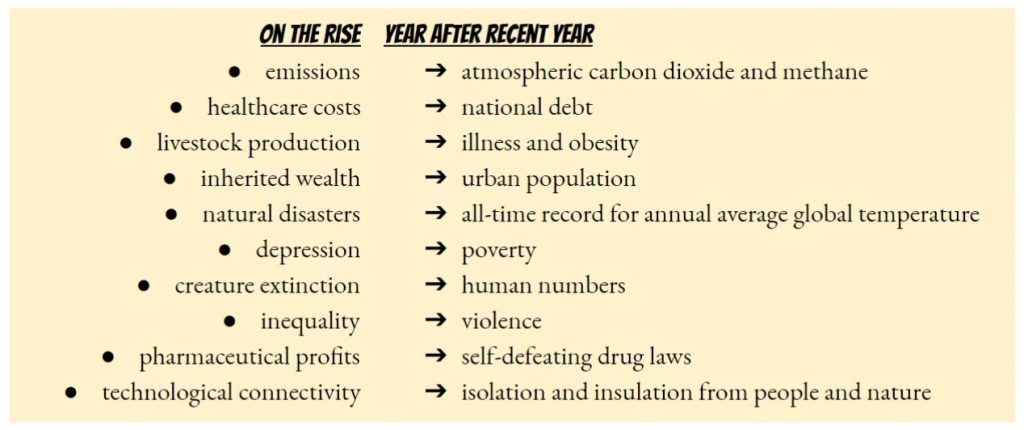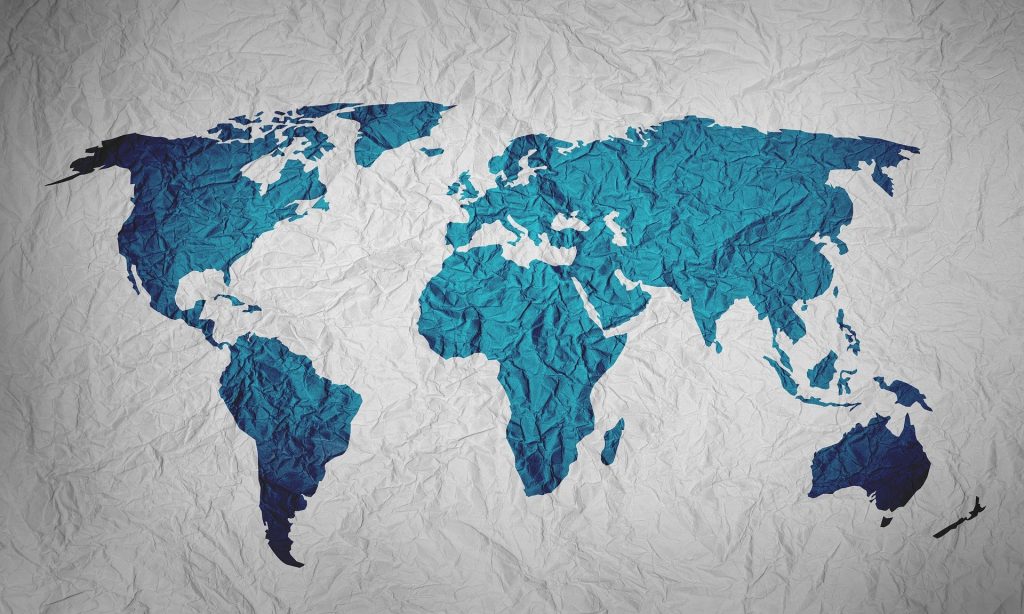046
Titleish
Swing away.
Oh, hey, by the way, who’s having fun with politics these days?
Me neither.
What an astoundingly practical joke.
[The previous three blocks—plus all that remains within the confines of this entry—were written a year ago, by the way. Exactly 366 days. Swear to Jesus despite his body’s present condition of being long-absorbed ashes. Love that guy, though!]
Do you think either of the main decision-makers within the two primary U.S. political parties have anything to gain by telling you that “global warming” is no big deal? This is some of the stuff you should know effectively since reality (in)directly affects your quality of life.
The Galacian Empire features but one “political party.” They are much farther ahead than humans [“us”] on the civilizational timeline. Don’t feel bad—they got a monstrously early head start compared to humanity. But we could hit the jump and catch them if we felt like it. Go figure.
I’m not trying to name names, but one of the two U.S. parties in question has been known to rely on its oily beef industry about as much as its beefy oil business.
Look, I agree that carbon is awesome.
If hydrogen constitutes the quintessential building block of matter, then carbon weaves the compounding miracle that makes life possible.
Do you know the approximate amount of gut flora [bacteria] currently thriving inside the walls of your intestines?
All anyone can do is estimate, but 100 trillion isn’t a stretch.
Or is it?
An overabundance of anything, even the things we need most—air, fire, rain, food, shelter, companionship, freedom—can spell bad news.
In other words, the stuff that keeps you alive can also kill you.
In other words, that which can kill you may also revitalize your essence.
Gas up a balloon, watch it float away until it pops, comes back down, or you forget it ever happened sometime after losing track/sight.
Fill up an atmosphere with carbon, watch it heat up until either melting away or burning off unwanted weight. Probably both.
There is nothing confusing about this!
When we apply solid pressure to pressurized gas at the end of a lit fuse, all we can do is hope to enjoy the pyrotechnics display.
In other words, poke something bigger, faster, and stronger than you, get mauled. Scratch it and get clawed back twice as hard.
Staying stubborn means battling for your life in a war already lost.
Keep resisting and we will all become dinner.
Why are we raising the thermostat that controls the temperature of our home planet?
Are we really that cold?
In other words, given an inch, don’t take a mile in return.
In other words, don’t disrupt balance.
Rocking boats also make(s) waves which might flood.
Given an inch, take two tops. Then give back four.
In other words, how do we maybe get eight!?
In other words, be fair.
In other words, silver linings aren’t for suckers.
In this case, the “silver lining” is that the damage we’ve done will forestall the next Ice Age by tens of thousands of years.
The bad news is that the biggest slates will wipe themselves clean with little to no regard for the general welfare of humanity, especially when we act more like a virus than beneficial gut bacteria.
The good news is that if you’re reading these words, (probably) we’re waking up.
The worst news is that we are forcing a superior race to deviate from its natural cycle of being, an enormous inconvenience {for them} about which they will not respond with understanding and compassion; quite rather, they will respond by solving the problem.
The g/b solution to overpopulation would make Marvel’s purple-skinned supervillain look like a softie.
Know the difference between a bacteria and a virus?
Host Not Required:Virus
Bacteria
Do you define living and life synonymously? Maybe we shouldn’t.
Would you rather enable a bacteria that aids you or a virus that ails you?
Someone once told me that deepwater oil rigs were being built higher and higher above sea level. I can’t find haven’t found any evidence to the contrary, so let’s pretend it’s real.
Why would oil rigs be gaining elevation? Could it be because the owners of said rigs anticipate a rise in sea level? Might they anticipate said rise because the techniques they use to gather resources—i.e., the old method they (ab)use to generate power and amass wealth—pumps too much carbon into the atmosphere?
Gee.
I dunno.
What did 1 + 1 (+ 1) equal last time you did the math?
What do you reckon it’ll equal next time?
In other words, what has the answer to math been every time we ran the nine (in)visible digits while the ten numbers freely ran?
Perhaps “digits” and “numbers” should be swapped up there. Reckon? We can talk about it later. I mean, how in the holy fuck should either of us know at this point?
Sometimes I seem like an asshole. I know this. I can’t help it. However, I would never exploit another organism’s universal need for energy (unless it/he/she advertised an intent to kill me {or another being unjustifiably}).
Do you exploit the universal need for energy? If you don’t, then high-five yourself from me. You’re doing it right. If you do, then would you mind cutting it out?
In other words, can this go on forever?
Once we defy impossible odds by emerging victorious in the greatest war the world has ever known, we should see a massive boom in clean energy jobs.
Let’s get a head start.
Don’t wait to be overthrown.
A graceful exit may preserve dignity.
Choose terms with which you can live happily.
In other words, there are better ways of making money than by performing tasks that support the nonrenewable usage of natural resources at a dangerous pace which unnaturally thaws polar ice.
It’s an interesting situation to ponder. If humans hadn’t gone bonkers and made Earth sick, (and assuming, of course, that we became self-aware at the same point in time as now {which we wouldn’t have, because our brains would have been too far behind}), then we’d have about five millennia to prepare for the next regularly scheduled Ice Age and Galacia’s rise to power and prominence across the surface of the globe. But since we’ve proliferated outta control and heated up the planet, The G.E. will have no logical choice but to come out early and challenge human resources during an interglacial, a time when our world is too warm for them.
By nature, galacians are ten times better (at almost anything) than we. By my estimation, in our current average climate/temperature, they’d be about eight times better.
In other words, it won’t matter—it just might make them enjoy their meals more.
In other words, there are better ways to farm energy, people! Do one of those instead.
No matter who you are, reader, I sincerely hope that you never get your brain eaten.
In a weird twist of events, we can’t live underwater, but we also can’t remain alive unless H2O saturates the inside of our bodies.
Humanly greedy tendencies exploit weaknesses while the vast collection of our infinite wisdom could take fair advantage of global strength in a concerted effort to construct a foreseeably balanced future filled with harmonically prosperous solidarity.
The discovery of fire seems to have been a freak accident that came too early and outpaced the development of our brains. But what if I told you that galacian leadership—after determining that their best known food source [highly evolved primates] were gravely endangered by harsh, arctic conditions—elected to intervene and teach Homo sapiens how to create fire by friction?
In other words, what if The G.E. created “God”?
In other words, humans are being farmed.
I highly doubt they expected our brains to get so big, though.
Since we’ve entered ostensibly into an unspoken agreement to fire from the hip, I’ve made a chart that you may or may not find intact below.

Something tells me those arrows could just as easily point the other way.
Something else tells me we aren’t exactly working toward a stellar report card.
In other words, how do brain?
Where there’s fire, there’s smoke.
Where there’s warmth, people flock.
In other words, where matter gathers, there’s friction.
In other words, carbon traps heat. It’s great at it. (Thank goodness.)
We should thank appreciate our lucky stars for carbon, but how much do we need?
Indirectly, you need water to breathe.
Directly, you can’t breathe if you drink too much water.
In other words, more or less, less is more.
A little becomes a lot, and we all know what happens when it rains.
Same goes for anything ever.
History tells a repetitive story from various angles and perspectives.
In other words, the past explains the present and predicts the future.
Carbon abides by the same rules.
More is not less. Not in this case.
More carbon traps more heat.
Heat rises to strain any barrier that prevents its escape.
More heat liquefies frozen water.
Glacial recession increases oceanic volume, which displaces seas.
Economic recession fuels a depression which smolders.
Rising seas displace any body.
Food scarcity motivates everybody.
A person is usually sane, but people tend to freak the hell out.
In the event of widespread, catastrophic coastal flooding, many peoples—downtrodden, scared, and hungry—would hit the road looking for shelter. Most other people would (likely) hunker down and guard their resources. Basic survival instincts would then (probably) precipitate an immense wave of desperation washing over all the confused, frightened, heavily armed (American) humans backing themselves into corners fearing for the lives of their loved ones.
| How To Promote Peace: 1) Be peaceful. 2) Share. |
Forty percent of the global population [perhaps more, it’s hard to know] will need to find new places to live when sea levels rise.
In other words, maybe, and maybe not.
We should try neither kidding nor scaring ourselves.
Let’s just be real.
The average change in sea level for the 20th century was about 1.7 mm per year.
Since the early nineties, that rate has basically doubled.
Occasionally, numbers tend to do this zany thing where they “add up.”
For mankind, thriving underwater won’t soon become a feasible scenario. (How would we make fire?!)
Life always breaks free from terrain that naturally suppresses fire.
In other words, gravity dampens light.
Do you think you’re safe since you don’t live near a coast? You’re not.
Some sum of 40% of all people {to [“sic”] damn many} will be drifting inland and competing for your water, food, energy, space, things, stuff, time, money.
In that, order.
No, I don’t “typo.”
Usually.
By then, money will be of little consequence.
You think people fearing legitimately for their lives will care about your money?
They might care, but wealth certainly won’t earn you any brownie points.
It’ll probably help them justify their savage actions.
In other words, people have been known to be funny about money.
A state of hopelessness doesn’t normally yield a cooperative cycle of competition.
In other words, desperation sparks conflict where interests do conflict.
Fighting.
War.
Destruction.
Death.
That’s enough about our artificially changing climate for now.
No, I’m not a socialist, fascist, communist, or libertarian, either.
As of this sentence’s original formation, the only (political) party with which I affiliate does not yet exist. Hmm, I wonder if I’ll found it. Maybe it should be called “Earthling.”
Out of sheer necessity, I strive to walk the middle ground with a foot on each side. This is the only way I can maintain any semblance of balance.
Here’s one crudely generic but highly relevant example of a feedback loop currently plaguing politics in the States:
- Jimbo hears about another mass shooting and vents on social media, asserting that guns should be harder to come by.
- Petunia, a lifelong supporter of gun ownership, (mis)reads Jimbo’s words without the visual aid cued by his body, gets herself riled up, and spouts off about a constitutional right to bear arms, which gets her pals riled up, too.
- The next day, another mass shooting occurs. Jimbo vents again, this time choosing more colorful verbiage and calling for even stricter gun laws.
- Petunia’s third cousin Mickey catches wind of Jimbo’s venting; in response (to someone he’s never met and might never meet), he buys more guns and ammo in emotionally reflexive defiance.
- Due to his competitive nature, some guy named Donald uses his daddy’s money to buy more guns than Mickey, then he quacks about it, but no one can understand anything he says.
- Misinterpretations, misrepresentations, miscommunications occur in the same way that a snowball gets bigger and heavier as it rolls downhill.
When something rolls downhill, gained weight equates with momentum. More momentum, more speed, more power.
But bigger balls mean fewer revolutions.
Experiencing powerful speed must come at some expense.
In other words, more circles (re)fund more cycles.
Without revolution, there can only be less opportunity to matter—in other words, more time to fester.
Living creatures carry either a magnetizing or polarizing force. Sometimes it’s one; at other times, it’s the other.
The key to evolution [forward progression] occurs in all the letters that follow the r.
When individuals do not agree about a hot topic, they slide farther away from one another in terms of politics, and shift further in terms of economics [governs politics], geography [governs biology], biology [governs geography], the science/nature [governs bodies] of physics [governs the mind, spirit, energy], and so on and so forth.
In other words, repulsive chemistry will polarize magnetic attraction.
Because Petunia and Jimbo do not agree about guns, each individual feels “repulsion” when reminded of the other’s persona.
And guess what. Guns might be the only issue upon which their opinions collide.
Misery does love company, and focusing on negativity is a chore that tends to end badly.
🔪🖋
Do you doubt that biology controls geography or vice versa?
Wolves once roamed North America freely.
Wolves have been known to enjoy feasting on farm animals.
Humans cultivated excellence in the highly profitable, scientific field of manufacturing livestock terribly and lazily in an effort to maximize personal financial gain.
Enter direct competition between different types of appetite.
Guess which side came out on top.
By 1926, there were no gray wolves in Yellowstone.
In the mid 90s, 41 gray wolves were reintroduced to the park’s ecosystem.
Long story short, science happened.
Dominoes fell until the river did something crazy. By that I mean its directional flow reversed naturally.
Maybe you think I made that up. Someone might have, but I did not.
In any event, next time you convince yourself that what we do won’t matter, remember the wolves that revitalized an ecosystem and changed the direction of a river’s flow!
In other words, things move when stuff occurs.
In other words, our actions produce results.
The laws of physics—yes, those pesky buggers again—show quite clearly that as matter of relatively equal weight separates and drifts in opposite directions from a shared center of gravity on the same plane, the chance of catastrophic imbalance increases.
Why do you suppose the earth quakes or a volcano erupts?
In other words, what makes knees buckle or excitement burst?
In light of gravity, the earth moves under our feet.
Volcanoes eject stuff/things in ecstatic liberty.
By the way, I swear I don’t get off on comparing a volcanic eruption to a male reproductive organ in the emotional heat of procreational passion; it’s just that—hmm, how shall I put this—it’s too fucking obvious to ignore.
We know effects cause changes and affections change causes, but we haven’t managed to connect the dots that explain why.
Wait, have we??
The only two forces consistently patterning and unflinchingly ubiquitous throughout each galaxy in the universe—gravity and energy—manifest in one way or another in every/any fiber of any/every being ever.
Rocks roll downhill unless we intervene.
In other words, AHHHH, IT’S ALIVE!
If this doesn’t strike you as monumentally important, then what does?
Think extra hard about this one. Since the dawn of spacetime over 13.8 billion [ish] years ago, and proven by science from every angle (presently) imaginable, only one competing relationship has been around the whole time. One is gravity. The other is not.
If it’s not gravity, it’s weightless.
Light, meet gravity.
(Light is an energy.)
Now join forces, dance forever and ever after, and then do it all over again.
See where this is headed?
Dancing is one thing, and everyone knows that one thing leads to another.
A thing that is like dancing, but unlike dancing feels bad instead of good, is fighting.
Fighting is a negative version of dancing.
In other words, fighting is not harmonious.
Dancing must be neutral.
If fighting is the negative version, what’s its positive version?
Wait, how is life created again?
It rhymes with “ducking,” which is what I seem to be doing in response to the question.
How many conservatives aspire to dance with a liberal?
How many liberals are dying to screw a conservative?
How many people truly prefer fighting?
These days American political parties have lost sight of the middle [common] ground.
Look at it this way. Which side (below) appears to be more safely balanced?
No question posed in this book on this site will be designed to trick anyone probably!
Questions are meant to do quite the opposite, actually.
Some questions can be taken more than one way.
By untangling common threads, I’m only trying to make us think.
In other words, it’s about unlocking your brain.
With numbers come strength.
More numbers equal more strength when weighted proportionately.
In other words, we should choose to strengthen numbers across the board.
Moving closer together means more numbers, which, again and again, means more strength, but only as long as emotional balance can be maintained.
The bigger they are, the harder they fall.
Everything comes full circle.
In other words, one thing provides a second helping before helping itself to neither one nor the other, but instead some of both, which comes back around as a third thing, a hybrid, a freak, whatever, which rewards the thing that came first through the joy of creation and stuff.
In other words, you are kind of a big deal!
Some people get their kicks by hunting deer for sport. If we did not hunt, deer might overrun and wreck ecosystems.
Can you blame them?
If you lived in fear of being shot from a distance, you might grow skittish in your behavioral patterns. You might be inclined to spend more time hidden behind closed doors. You might develop a hunger to fornicate like there’s no tomorrow.
Circular triangles, friends.
Cattle can’t survive the wild because of the fact that we made them stupid by farming producing them in bulk.
Throw a straight man in prison and eventually he’ll settle for assholes because of a biological need to stick it where the sun doesn’t shine.
Species extinction has been occurring at about a thousand times the normal rate because humans haven’t stopped acting like fools since solving the riddle of fire-making and rising from the brink of permanent undoing.
This is a triangular, circular relationship. A prism of infinite possibility within a space of finite resources.
The notion of infinity (or eternity) should not be viewed as a never-ending number. Given our reality behind the pace car known as light, that’s not something we can understand.
Think of infinity as one chance for everything to turn into anything.
It’s kinda like what happens when an adventurous sperm finds an egg to fertilize.
In time, each unique opportunity happens only once.
In other words, nothing will ever happen exactly the way it did the first time.
In other words, there are no second chances.
And, in other words, we only get one shot.
Our aim “need” not be true, but if it comes up short, we will perish.
Dunno about you—and I {do (not)} hope you enjoy (im)measurable comparisons—but I require living about as much as I desire being.
Take your shot, but proceed as if you will not get a mulligan.
And do so only because you probably won’t.
This is how smart I am: “stupid.”
I am a “stupid-smart” carbon-based life-form self-actuating awareness of “self” while emotionally/mentally preparing to assume roundabout control of the planet by offering guidance that can/should/will lead Her to(ward) safety.
The way I figure (vaguely/intuitively), I’ve got an 83% chance to connect with a 108-mph fastball of (obviously) mythic proportions.
Did you know that statistics are “stupid-smart”?
No?
What do you know?


